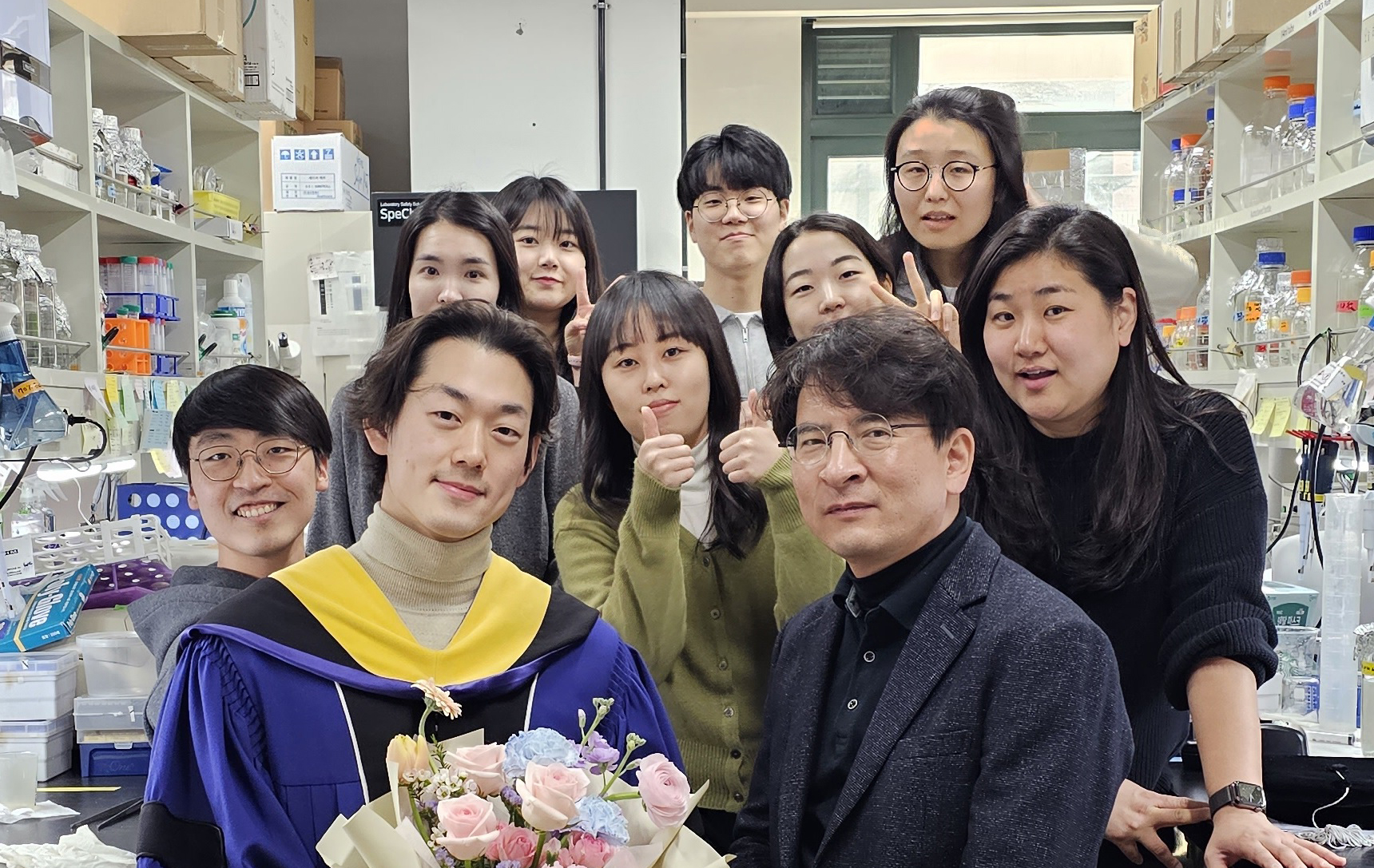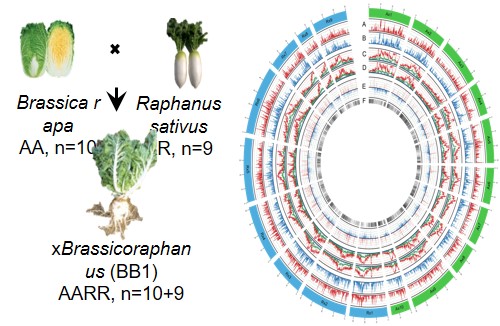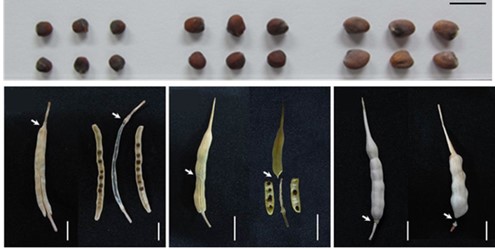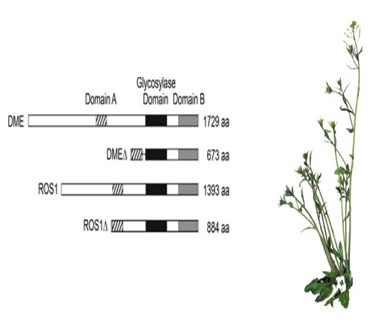Recent published journal
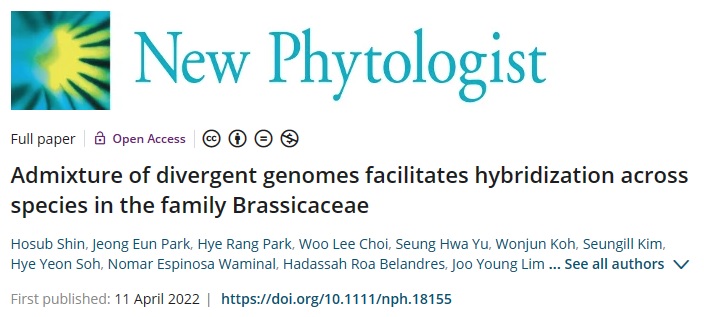
Admixture of divergent genomes facilitates hybridization across species in the family Brassicaceae
Hybridization and polyploidization are pivotal to plant evolution. Genetic crosses between distantly related species are rare in nature due to reproductive barriers but how such hurdles can be overcome is largely unknown. ere we report the hybrid genome structure of xBrassicoraphanus, a synthetic allotetraploid of Brassica rapa and Raphanus sativus. We performed cytogenetic analysis and de novo genome assembly to examine chromosome behaviors and genome integrity in the hybrid. Transcriptome analysis was conducted to investigate expression of duplicated genes in conjunction with epigenome analysis to address whether genome admixture entails epigenetic reconfiguration.Allotetraploid xBrassicoraphanus retains both parental chromosomes without genome rearrangement. Meiotic synapsis formation and chromosome exchange are avoided between nonhomologous progenitor chromosomes. Reconfiguration of transcription network occurs, and less divergent cis-elements of duplicated genes are associated with convergent expression. Genome-wide DNA methylation asymmetry between progenitors is largely maintained but, notably, B. rapa-originated transposable elements are transcriptionally silenced in xBrassicoraphanus through gain of DNA methylation.Our results demonstrate that hybrid genome stabilization and transcription compatibility necessitate epigenome landscape adjustment and rewiring of cis–trans interactions. Overall, this study suggests that a certain extent of genome divergence facilitates hybridization across species, which may explain the great diversification and expansion of angiosperms during evolution.
